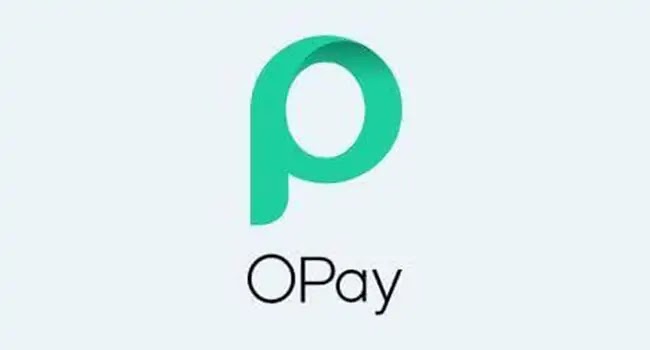In response to the Central Bank of Nigeria’s (CBN) stringent Know-Your-Customer (KYC) directives, OPay, a leading mobile-based payment platform, has pledged to enforce the mandatory requirement of Bank Verification Number (BVN) and/or National Identification Number (NIN) for all accounts holders.
This commitment aligns with CBN’s directive, making BVN and/or NIN mandatory for all individual accounts and wallets before March 1, 2024.
Read also: NiMC plans NIN registration app for immigrants by 2024
OPay Implements First Two Stages of KYC to Enhance Security Measures
Priscilla Olayemi, the Director of Card Business at OPay, during a media parley in Lagos, disclosed that the company has already initiated the first two stages of KYC to meet CBN’s regulations. Users with tier one accounts are now required to provide BVN or NIN for login and financial transactions. Additionally, new account registrations mandate the submission of BVN or NIN, reinforcing OPay’s commitment to robust customer identification.
Emphasising the importance of security, I.K Odiase, the Director of Partnerships at OPay, announced the platform’s proactive stance against fraudulent activities. Beginning March 1, 2024, any account found to be involved in fraudulent activities will be promptly removed from the OPay platform. Odiase urged OPay customers to verify that the information provided during account registration matches the details in their NIN and BVN, warning that discrepancies may lead to account termination.
Adekunle Adeyemi, Head of Marketing and Communications at OPay, highlighted the company’s continuous efforts to keep customers informed and vigilant. Through in-app messages and social media platforms, OPay regularly updates users on potential fraud risks and security measures. Adeyemi stressed the significance of customer awareness, acknowledging the evolving tactics of fraudsters and OPay’s commitment to enhancing protective measures.
Upholding Security and Compliance in the Financial Landscape
Underlining OPay’s dedication to customer protection, Adeyemi explained the multi-layered security infrastructure in place. In addition to robust systems, OPay provides USSD codes for customers to dial in case of compromised accounts, offering a swift response to potential threats. Adeyemi assured customers that regardless of the situation, OPay remains focused on ensuring their accounts are thoroughly protected.
As OPay aligns with CBN’s directives, the company demonstrates a proactive commitment to enhancing security measures and ensuring compliance with evolving regulatory frameworks. By incorporating strict KYC protocols and fostering customer awareness, OPay aims to create a secure financial environment for its users in the ever-changing landscape of digital transactions.
CBN’s 2023 directive on BVN or NIN registration for all individual bank accounts
In a circular issued in December 2023, the Central Bank of Nigeria (CBN) mandated that all individual tier 1, 2, and 3 accounts/wallets, both existing and new, must be linked with either Bank Verification Number (BVN) or National Identification Number (NIN). The circular, signed by Mr. Chibuzo Efobi and Mr. Haruna Mustapha, Directors at the CBN, was addressed to commercial, merchant, non-interest, and payment service banks, as well as other financial institutions and mobile money operators.
Mr. Haruna Mustapha, Director of the Financial Policy and Regulations Department at the CBN, highlighted that this mandate is part of the apex bank’s commitment to promoting financial system stability. The circular included an amendment to Section 1.5.3 of the Regulatory Framework for BVN Operations and Watch-List for the Nigerian Banking Industry (Guidelines).
The circular specified immediate actions for existing unfunded individual Tier 1 accounts without BVN or NIN. Effective immediately, such accounts would be placed on “Post No Debit or Credit” until the necessary compliance processes are satisfied. Furthermore, starting March 1, 2024, funded accounts or wallets without BVN or NIN would face the same restriction, with no further transactions permitted.
The circular emphasised the electronic revalidation of BVN or NIN attached to and/or associated with all accounts/wallets. A deadline of January 31, 2024, was set for this revalidation process, ensuring that financial institutions update and verify customer information promptly.
Challenges and Solutions in Nigeria’s National Identification Project
To ensure uniform and full compliance across all regulated institutions, the circular advised executive compliance officers, chief compliance officers, or heads of compliance functions to acquaint themselves with the attached guidance notes. These notes are deemed applicable to all institutions under the regulatory purview of the CBN.
The CBN’s directive underscores its commitment to enhancing financial security and stability by enforcing the linkage of BVN or NIN to individual accounts. Financial institutions are urged to promptly adhere to these guidelines, ensuring the smooth implementation of the mandated compliance processes and the electronic revalidation of customer information by the stipulated deadline. The move aligns with the CBN’s broader mission to fortify the Nigerian financial landscape against potential risks and challenges.




